More businesses reopen in China, but many people stay home
Advertisement
Read this article for free:
or
Already have an account? Log in here »
To continue reading, please subscribe:
Monthly Digital Subscription
$0 for the first 4 weeks*
- Enjoy unlimited reading on winnipegfreepress.com
- Read the E-Edition, our digital replica newspaper
- Access News Break, our award-winning app
- Play interactive puzzles
*No charge for 4 weeks then price increases to the regular rate of $19.00 plus GST every four weeks. Offer available to new and qualified returning subscribers only. Cancel any time.
Monthly Digital Subscription
$4.75/week*
- Enjoy unlimited reading on winnipegfreepress.com
- Read the E-Edition, our digital replica newspaper
- Access News Break, our award-winning app
- Play interactive puzzles
*Billed as $19 plus GST every four weeks. Cancel any time.
To continue reading, please subscribe:
Add Free Press access to your Brandon Sun subscription for only an additional
$1 for the first 4 weeks*
*Your next subscription payment will increase by $1.00 and you will be charged $16.99 plus GST for four weeks. After four weeks, your payment will increase to $23.99 plus GST every four weeks.
Read unlimited articles for free today:
or
Already have an account? Log in here »
Hey there, time traveller!
This article was published 10/02/2020 (2129 days ago), so information in it may no longer be current.
BEIJING – More offices and stores in Beijing and other parts of China finally reopened Monday after the Lunar New Year break was extended to discourage travel and contain the new coronavirus, but many workers and shoppers appeared to stay home.
Public health authorities are watching closely to see whether the return to business worsens the spread of the virus, which has infected more than 40,000 people globally and killed over 900, with the vast majority of cases in China.
Even before the slow and cautious reopening, China on Monday reported a rise in new cases, dimming optimism that the near-quarantine of some 60 million people and other disease-control measures might be working.
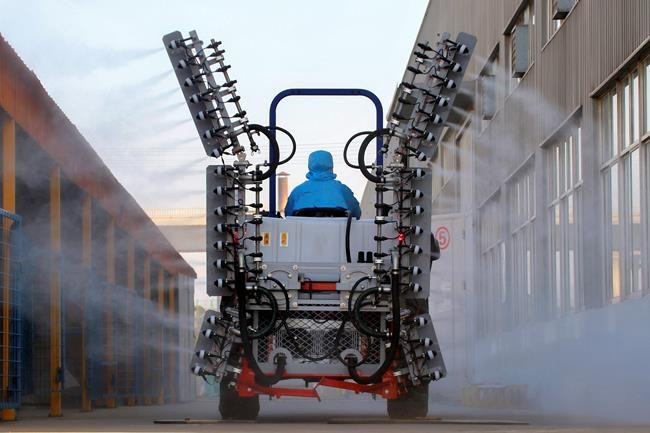
Britain, meanwhile, declared the virus a “serious and imminent threat to public health” and said it would forcibly detain infected people if necessary. France tested scores of children and their parents after five British tourists contracted the virus at a ski resort.
The director-general of the World Health Organization said that the agency is still unable to predict where the outbreak is heading but that he believes there is still an opportunity to contain it.
“In recent days, we have seen some concerning instances of onward transmission from people with no travel history to China, like the cases reported in France yesterday and the U.K. today,” said Tedros Adhanom Ghebreyesus. “The detection of the small number of cases could be the spark that becomes a bigger fire, but for now, it’s only a spark.”
The latest developments:
CHINESE OFFICES, MARKETS START TO REOPEN
Zhang Peng, who works for a livestreaming company in Beijing, went to the office for the first time since the holiday, which was supposed to end on Jan. 30. The company checked employees for fever and handed out masks.
“I thought the situation is fairly good now,” Zhang said. “I went to work by subway today and underwent various checks in the station. And my company did a good job of prevention and control.”
Iris Ke, who works for an advertising company, said she plans to wait until next week to go back to the office.
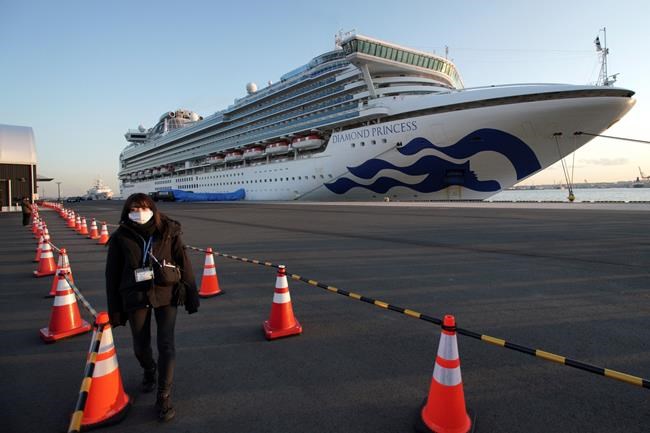
“We just need to have a little more sense of self-protection,” said Ke. “Life goes on anyway. How come we stop going outside or stop working simply because of fear of disease? We can’t do that.”
There were few signs of activity on the streets of Beijing. The capital’s broad avenues were largely free of traffic, and thousands of rental bikes stood in long ranks with hardly a customer. Tourist attractions such as the Forbidden City remained closed, as did schools, and many people worked from home, hoping to avoid crowds.
Those shops and restaurants that did open found few customers.
At the Sanyuanli market in Beijing, the stalls were stocked with pork, mutton, seafood and vegetables and shoppers wore face masks.
“The number of customers here is down a lot, maybe by more than half,” said Liu Ying, who sells walnuts, cashews and other specialties. “But you can see a lot of people calling in orders, so we’re slowly getting busy again.”
The Beijing city government told residential compounds in the capital to close their gates, check visitors for fever and record their identities. The government also warned people to strictly abide by regulations requiring wearing of masks in public and to avoid group activities.
CHINA’S DEATH TOLL RISES
The mainland death toll rose by 97 to 908 in the 24 hours through midnight Sunday, and 3,062 new cases were reported, government authorities said. That was up 15% from Saturday and broke a string of daily declines that the government had said showed that containment measures were succeeeding.
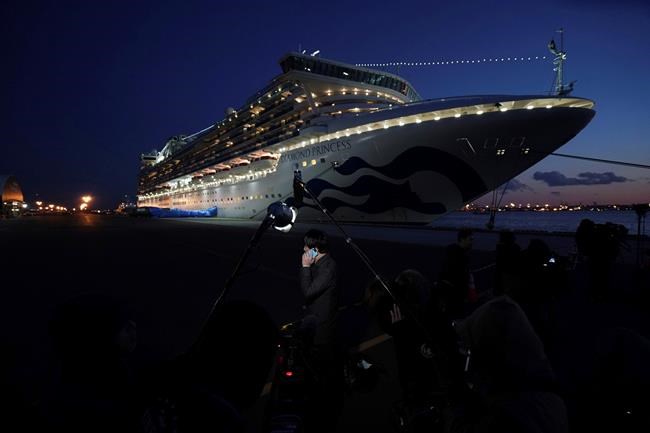
More than 440 cases have been confirmed outside mainland China, including two deaths in Hong Kong and the Philippines.
Chinese leader Xi Jinping, wearing a mask, visited a community health centre in Beijing. He had his temperature taken and expressed thanks to the health workers on behalf of the Communist Party and government.
“We will most definitely win this people’s war,” he said.
MORE CASES ABOARD CRUISE SHIP
Japan said an additional 65 cases were found aboard a cruise ship quarantined in Yokohama, near Tokyo, raising the total to 135.
Health Minister Katsunobu Kato said the Japanese government was considering testing all 3,700 or so passengers and crew on the Diamond Princess, which would require them to remain aboard until results were available. Health authorities are scrambling to deliver medicine requested by more than 600 passengers.
“We are doing the utmost to keep everyone in good health,” Kato said.
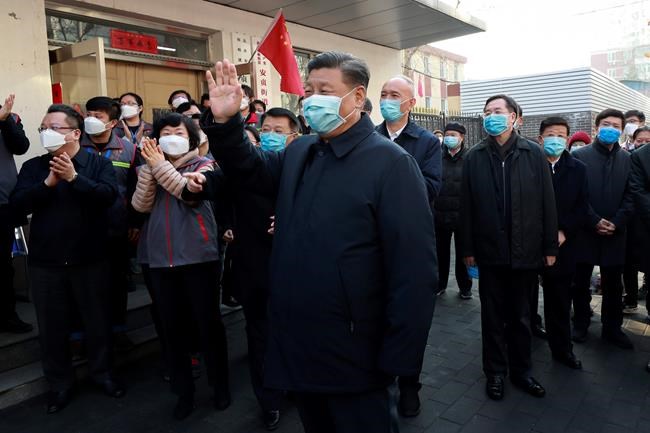
BRITAIN AND FRANCE ACT
Britain issued its “imminent threat” declaration after a British man who caught the virus in Singapore in January appeared linked to several other confirmed cases in Europe. Five Britons, including a 9-year-old boy, contracted the virus in the French Alpine ski town of Contamines-Montjoie after staying in the same chalet as the British man.
Jerome Salomon, head of France’s national health agency, said that in the wake of the episode, 61 people, including many children who went to school with the boy, were tested and proved negative for the virus.
CHINESE INFLATION RISES
Consumer inflation spiked to an eight-year high of 5.4% in January over a year earlier, driven by a 4.4% rise in food costs, the government reported.
“It appears that supply disruptions and hoarding due to the coronavirus outbreak helped to keep food prices elevated during the week after Chinese New Year, when they would normally drop back,” Julian Evans-Pritchard of Capital Economics said in a report.
China’s central bank announced a 300 billion yuan ($43 billion) fund to make low-interest loans to producers of medicine and medical supplies or other companies involved in fighting the virus.
Over the weekend, the government promised tax cuts and subsidies to farmers, supermarkets, producers of medical supplies and companies that contribute to anti-disease work.
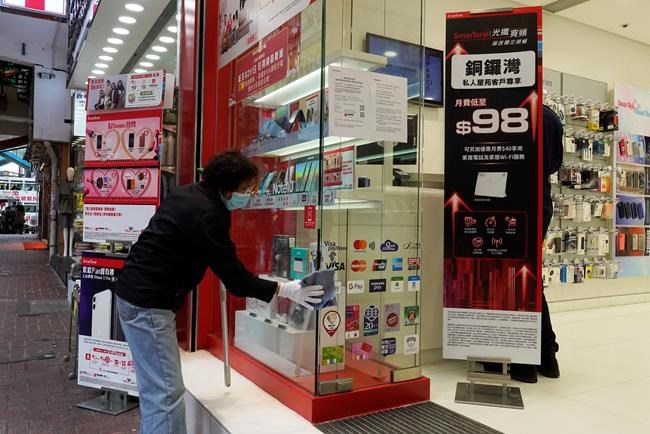
HONG KONG ARTS FESTIVAL CANCELED
The Hong Kong Arts Festival cancelled all of its more than 120 music, dance and drama performances, including two concerts by the Boston Symphony Orchestra. The festival was due to start this week and run through mid-March.
___
AP video journalist Liu Zheng and Associated Press Writers Mari Yamaguchi in Tokyo, Eileen Ng in Kuala Lumpur, Malaysia, and Danica Kirka in London contributed to this report.


